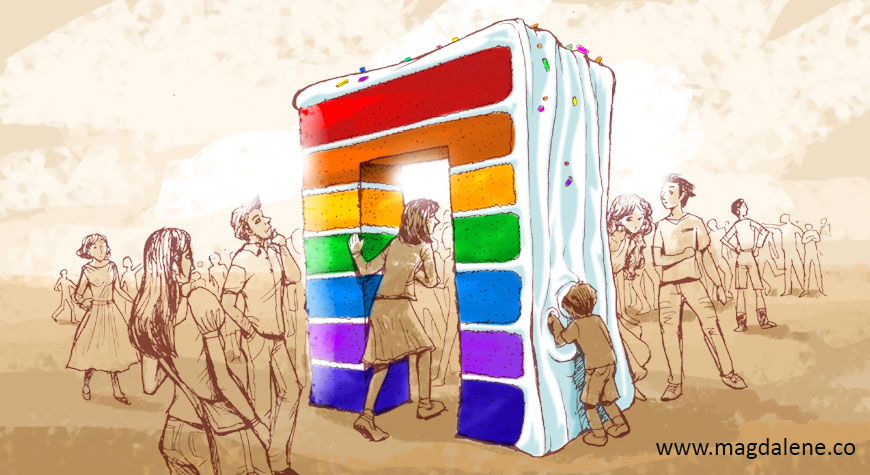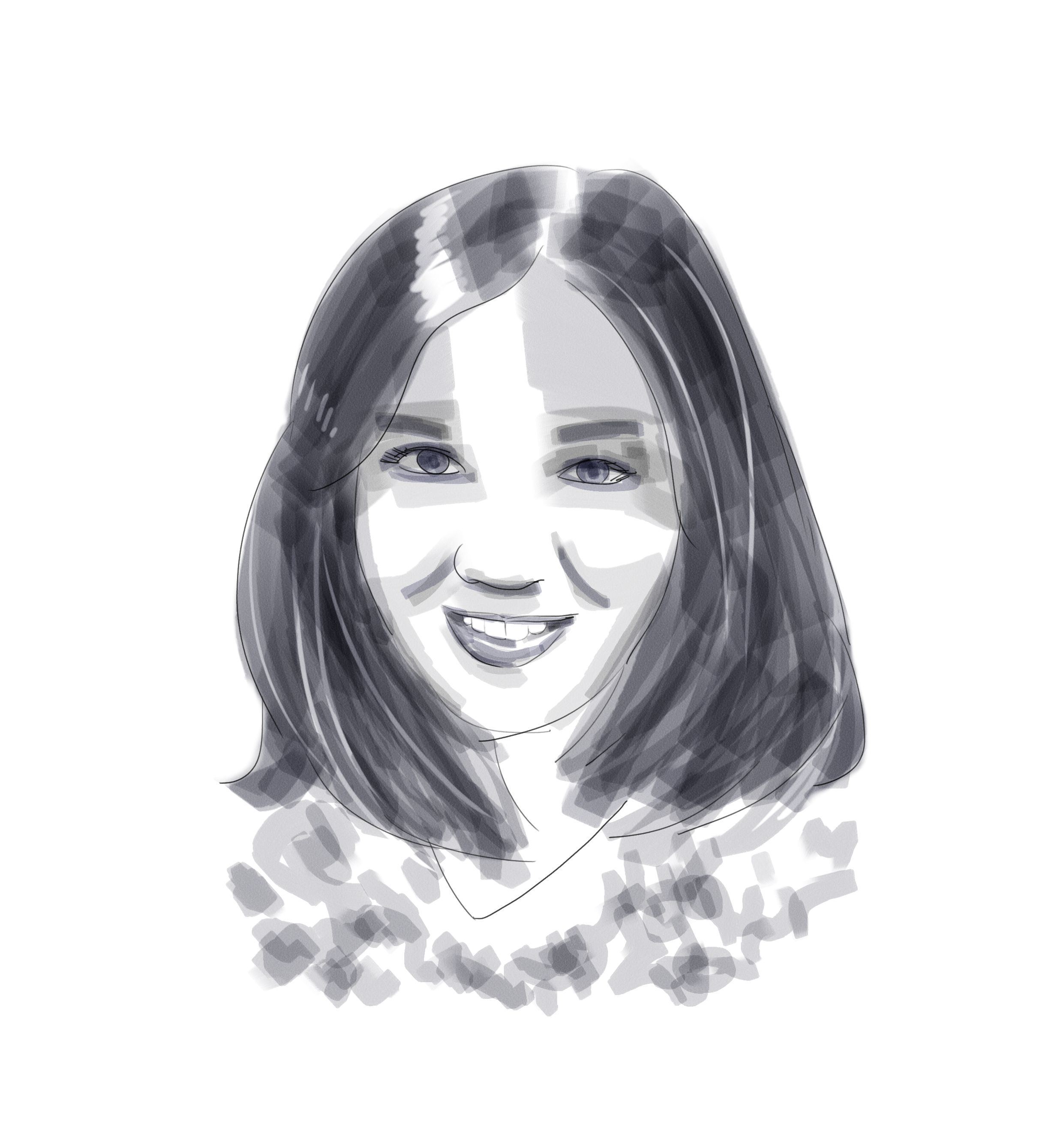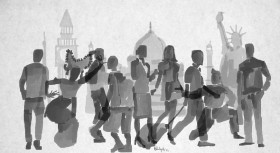When it comes to issues related to homosexuality, or what is now known by its shorthand LGBT (lesbian, gay, bisexual, transgender), the Indonesian mainstream media are still largely behind the times, if not completely inappropriate.
Reports are either judgemental, tinged with religious-bias, or sensationalized. They tend to make fun of LGBT people, portraying the exoticism, or even depicting homosexuals as predators.
This is the reason why the Ardhanary Institute, Hivos-Roses and Jurnal Perempuan issued a guidebook for the media on covering LGBT-related issues. The Modul Panduan Media Meliput LGBT was launched on Sept. 5 in Casakhasa Garden Bistro in Jakarta. This guidebook is aimed at helping journalists, filmmakers, scriptwriters, and other media workers to produce their works with a fair attitude towards LGBT people.
Sri Agustine of the Ardhanary Institute said the media are still prone to labelling, stereotyping, and stigmatizing the LGBT people in their coverage. For example, she said, if a crime case has an LGBT person as a suspect, although the crime itself has nothing to do with sexual orientation, the news tends to emphasize on the person’s homosexuality and gender expression rather than the case itself.
The guidebook addresses this tendency to fixate on the Sexual Orientation, Gender Identity, Expressions, and Bodies (SOGIEB) that is irrelevant to the issue.
Page 35 of the book says: “It’s wrong to imply or allow other people to have an impression that there’s a relation between sexual/gender identity and criminal activity. Both heterosexuals and LGBT people may commit crimes, but to leave an impression that LGBT people are doing criminal activity because they are LGBT is a form of defamation.”
The claim that LGBT people are sexual predators or violent is neither entirely wrong nor entirely correct because anybody can be that way, but the point is it has nothing to do with sexual orientation and gender identity. Even if it’s relevant, the media coverage should lean on factual evidence rather than baseless assumptions, she said.
During the book launch, Agustine moderated a discussion led by Hartoyo from the LGBT website Suara Kita, Luviana from the Independent Journalist Alliance (AJI), Ade Armando from the Communication Faculty of University of Indonesia, and Gadis Arivia from feminist publication Jurnal Perempuan.
Hartoyo recalled the time when Suara Kita was blocked by the Ministry of Information (Kemeninfo), because it was deemed not educational, though the ministry never explained the basis of this evaluation.
Luviana says the problem with the media’s tendency to link LGBT issue to religion is that it further sharpens the division, pitting LGBT people against the anti-LGBT religious figures.
“It doesn’t always have to be that way,” she said, “the media should look for religious representatives with a fresh perspective about LGBT to lessen discriminations.”
Ade Armando acknowledged the important role religion plays in Indonesia.
“If religions teach that homosexuality is condemned by God – not only ‘haram’ but also dangerous – it will influence people’s initial attitude, “ he said.
“We may learn from (Muslim scholar) Musdah Mulia, to understand that God doesn’t hate LGBT people. God loves LGBT people. It is important to write with sensitivity and really understand the current situation of LGBT people in Indonesia who have been living with discrimination and under oppression,” he added.
By emphasizing on sensationalism, the media cannot have a fair attitude towards LGBT people. Gadis Arivia cited an example of a headline news story on a corruption case that highlights the sexual orientation of the suspect by writing the word “lesbian” in capital letters. She reminded the journalists of the importance of ethics and credibility when producing work of journalism.
“Understand how influential a discourse is in affecting the way people think. It’s best that media and journalists go back to basics: accountability, factuality, and honesty,” she added.
Ade said that improving the media’s portrayal of LGBT people must embrace popular culture, as well, including talkshows, movies, songs, soap operas and many more. All of these involve not only journalists and scriptwriters, but also editors, sponsors, advertisement, and many more – all of which may complicate the process of change.
He suggested educating everyone who works in the media. People in the media need to understand that they have the power to influence public perception, so they must be educated on the issue. They must continue to be criticized so they are aware of the injustice that is in place against LGBT people.
“Of course, it is not easy to clear the prejudice, stigma, and stereotype about LGBT people, but I believe that it’s not impossible. It takes time to make people sympathize and empathize, until finally enlightened that we are all equal. But it’s not impossible,” he added.
This movie underlines similarities instead of differences.









Comments